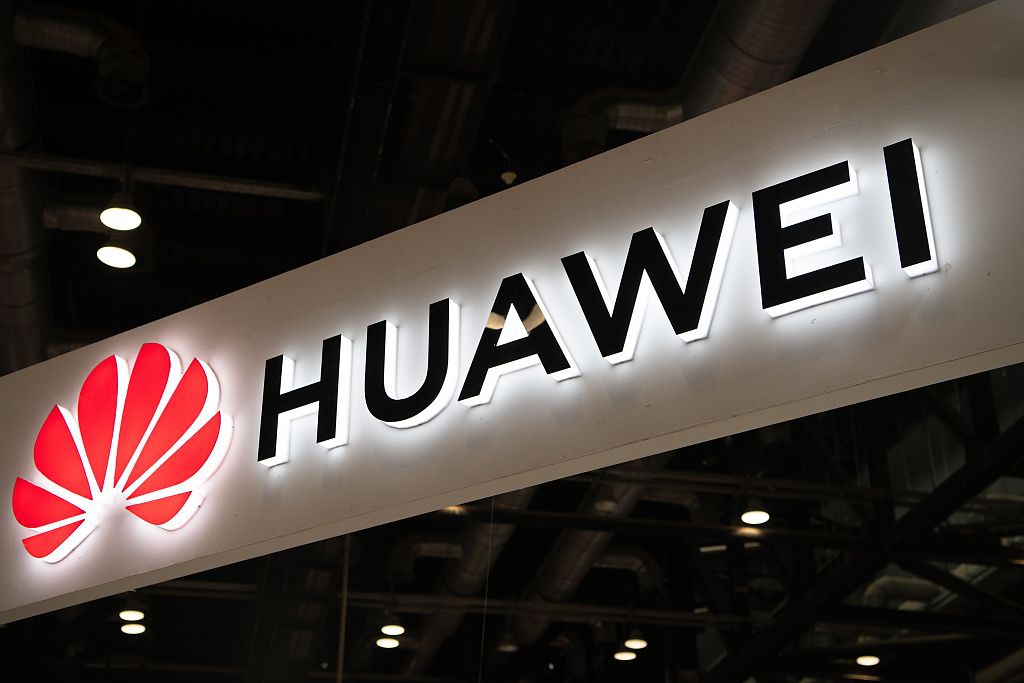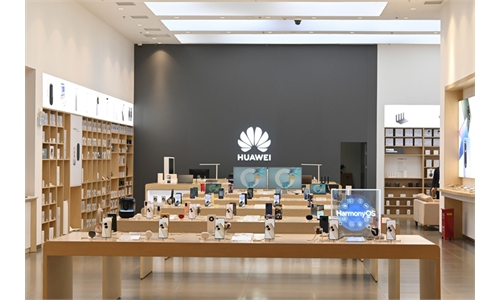
Huawei Photo: VCG
The Washington Post is just playing an old trick as it tries to hype a Xinjiang-related issue to attack Chinese authorities and companies in terms of so-called human rights, experts said, after the newspaper claimed that Huawei is helping prisons in Northwest China's Xinjiang Uygur Autonomous Region monitor criminals with its artificial intelligence (AI) technology, citing some "leaked" and "confidential" PowerPoint presentations (PPTs) from the company.
The Washington Post on Tuesday claimed that Huawei had helped many prisons in China - including those in Xinjiang - to create monitoring systems with its AI technology, which can "identify individuals by voice, monitor political individuals of interest, manage ideological reeducation and labor schedules for prisoners, and help retailers track shoppers using facial recognition."
Although Huawei denied knowledge of such a project to the US newspaper and stressed that it "provides cloud platform services that comply with common industry standards," the report still maliciously related the application of the technology in the region since 2017 to the so-called mass detentions of Uygurs in Xinjiang.
It is just the latest case that some Western media tried to play the Xinjiang card to smear China in terms of "human rights issues," as it is very normal for Chinese governments and companies to cooperate to apply high-tech products in city management, as the country is striving to gain a lead in the global race to build an intelligent and data-driven society, a person close to the case told the Global Times on Wednesday.
Another major aspect of the project is to install closed-circuit TV cameras in cities to ensure security. This has also been smeared by some Western media for a long time as a measure to "monitor people," the person noted.
Huawei did not respond to an interview request from the Global Times as of press time on Wednesday.
Chinese experts and officials have refuted such clichés as complete nonsense and revealed that such allegations were intended to serve the agenda of attacking China's smart city construction.
Some Western countries and their media outlets adopt double standards on whatever China does, including using modern technology in city management. High-tech systems are convenient and effective tools in city management, and they have been widely used around the world, experts said.
According to an ABC News report in 2019, wardens and sheriffs around the US were using AI to digitally mass-monitor millions of phone calls inside the nation's sprawling prison and jail systems, which helped law enforcement authorities acquire criminal information during the calls and prevent crimes.
A US House of Representatives panel passed a proposal in August to study the use of AI to analyze prisoners' phone calls to help prevent violent crimes and suicides, Reuters reported.
According to the "leaked" PPTs, Huawei's technologies provide the fundamental support for this so-called surveillance system. For example, in terms of voice analysis, Huawei only collects and manages the sounds, Xiang Ligang, director-general of the Beijing-based Information Consumption Alliance, told the Global Times.
Such technology can be used in many fields, including prison monitoring and facial recognition. China is more advanced than some foreign countries in terms of such intelligent systems, but the latter have also applied such technology in fields including prison monitoring, Xiang said.
If technologies developed by Microsoft and Intel are applied in management systems in US prisons, PPTs can also be created to say that the two companies are helping the US government monitor prisons, according to Xiang.
The report could also be part of an enhanced campaign by the US government and media to contain China in terms of human rights and democracy, as it came at about the time that the Biden administration held a "democracy summit," bashing China's human rights, especially the country's Xinjiang policy.
It also came on the same day that the US House of Representatives passed legislation to ban imports from China's Xinjiang region over concerns about forced labor.

